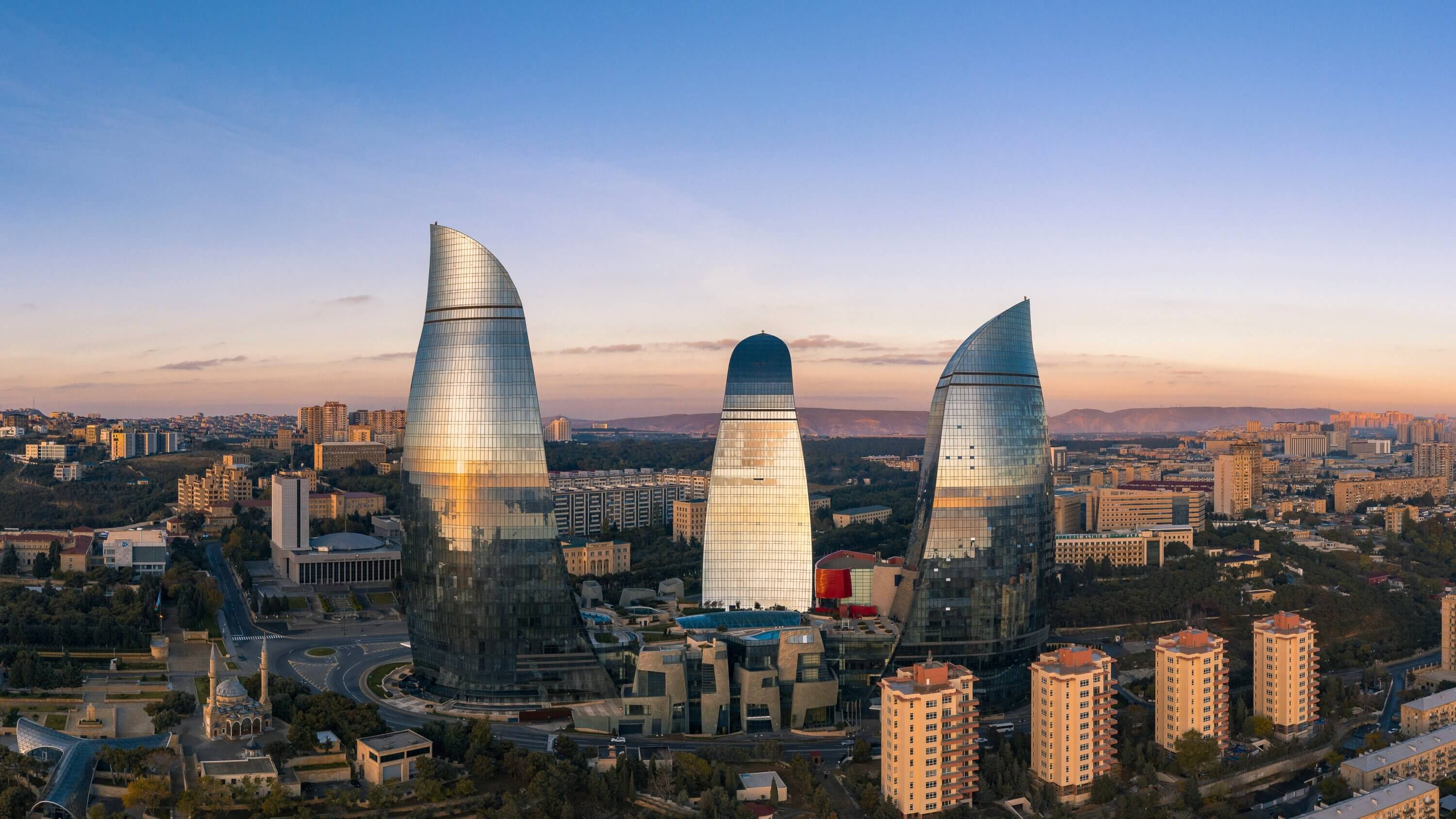
The upcoming 2024 United Nations Climate Change Conference (COP29) is an important moment in the implementation of the Paris Climate Agreement. It will be the time for the Global Stocktake, the review of progress made and efforts still to be made, with political recommendations for the way forward.
The International Science Council (ISC), its members and partners are involved in several official COP29 side-events and parallel meetings. The full extent of our engagement is detailed below.
As world leaders prepare for COP29, the report calls for ambitious and equitable climate policies that address these escalating risks. It emphasizes the need for policies to be perceived as fair by the public to ensure their success and warns against the resistance that can arise from policies viewed as unjust.
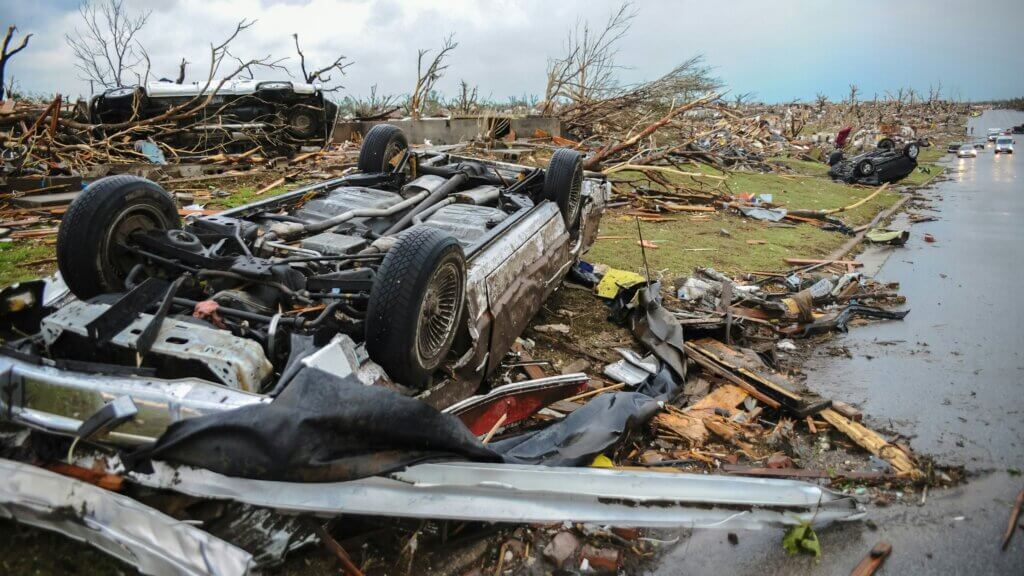 blog
blog
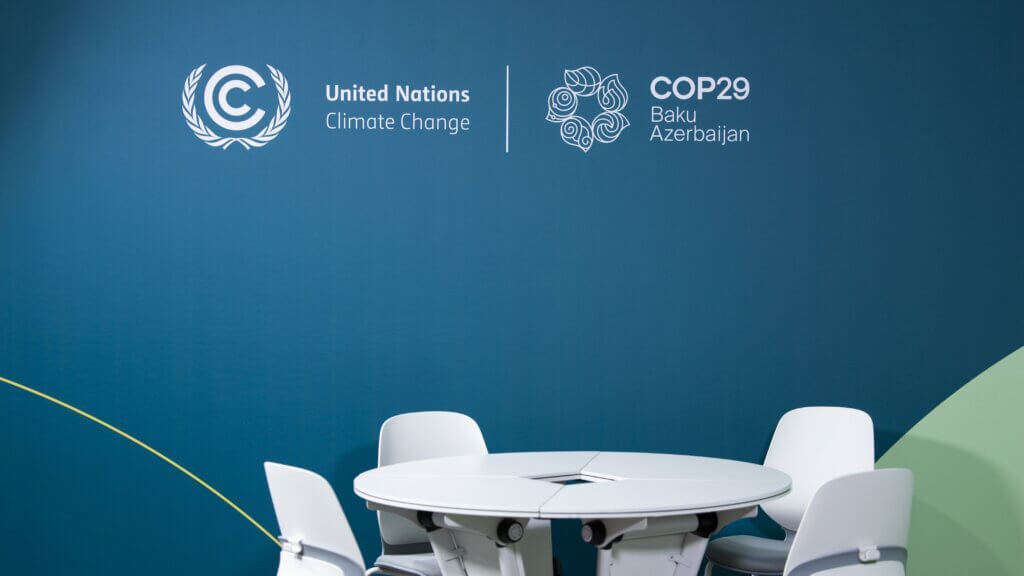 blog
blog
The International Science Council (ISC), in cooperation with the Karlsruhe Institute of Technology (KIT), is organizing an event on 12 November 2024, which will be held during the United Nations Climate Change Conference (COP29) in Baku, Azerbaijan.
Event time: 16:45–18:15 (local time). Location: Room 6.
| Welcome, Introduction and ISC’s Science Missions for Sustainability Salvatore Aricò (ISC Chief Executive Officer) |
| 10 New insights from climate science report Johan Rockström (Potsdam Institute for Climate Impact Research) |
| Panel discussion • Mari Sundli Tveit (Science Europe, Research Council of Norway) • Peter Thorne (Global Climate Observing System) • Reimund Schwarze (Integrated Research on Disaster Risk) • Renard Siew (Global Young Academy) • Rachel Huxley (Wellcome Trust) |
| Discussion, Q&A |
| Wrap up Alik Ismail-Zadeh (Karlsruhe Institute of Technology) |
Please note that virtual participants needs to be registered for virtual participation in COP 29. They will be sent a link one day before the session by the COP organisers.
The latest 10 New Insights in Climate Science report reveals critical climate challenges, highlighting how rising temperatures are raising the risk of ecosystem collapse and threatening maternal and reproductive well-being. Launched by a global consortium of scientists, this annual report synthesizes key findings from the past 18 months, aiming to inform policy decisions at COP29 and beyond.
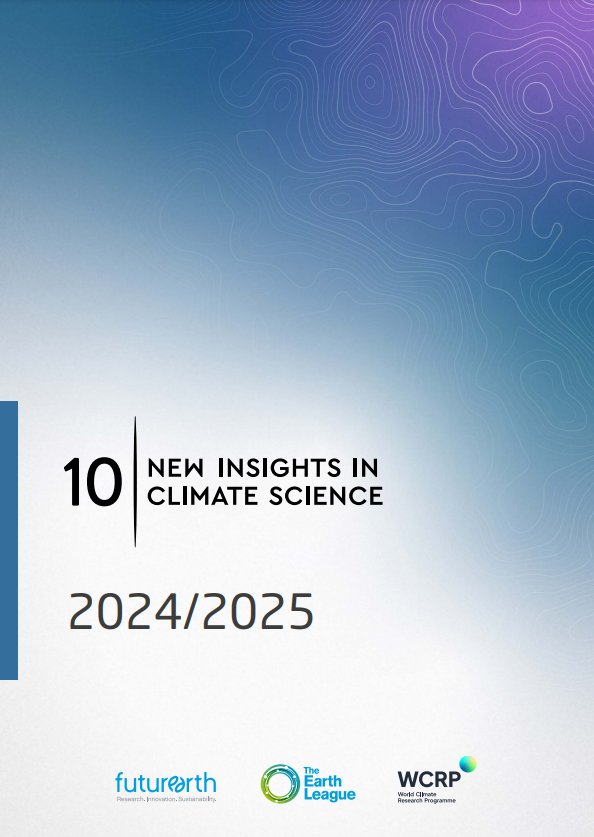
10 New Insights in Climate Science 2024/2025
Each year, Future Earth, the Earth League and the WCRP invite leading scientists from around the world to review the most pressing findings in climate change-related research. Summarized into 10 concise insights, the result has always been a rich and valuable synthesis for policy and society at large.
The UN climate change process relies heavily on science and systematic observations. Since the 1950s, the global scientific community, represented by the International Science Council (ISC), has played a pivotal role in advancing climate science at the international level and informing policy processes.
Over the past sixty years, in collaboration with other international organizations, the ISC has co-sponsored numerous science initiatives, programs, scientific committees, and observing systems—collectively known as Affiliated Bodies—that have generated critical knowledge on climate change and contributed to a more comprehensive understanding of the Earth system.
Below is a selection of our resources on climate change and sustainability.

The brief aims to advance a science-based approach ensuring the instrument is based on the latest and best scientific evidence available.
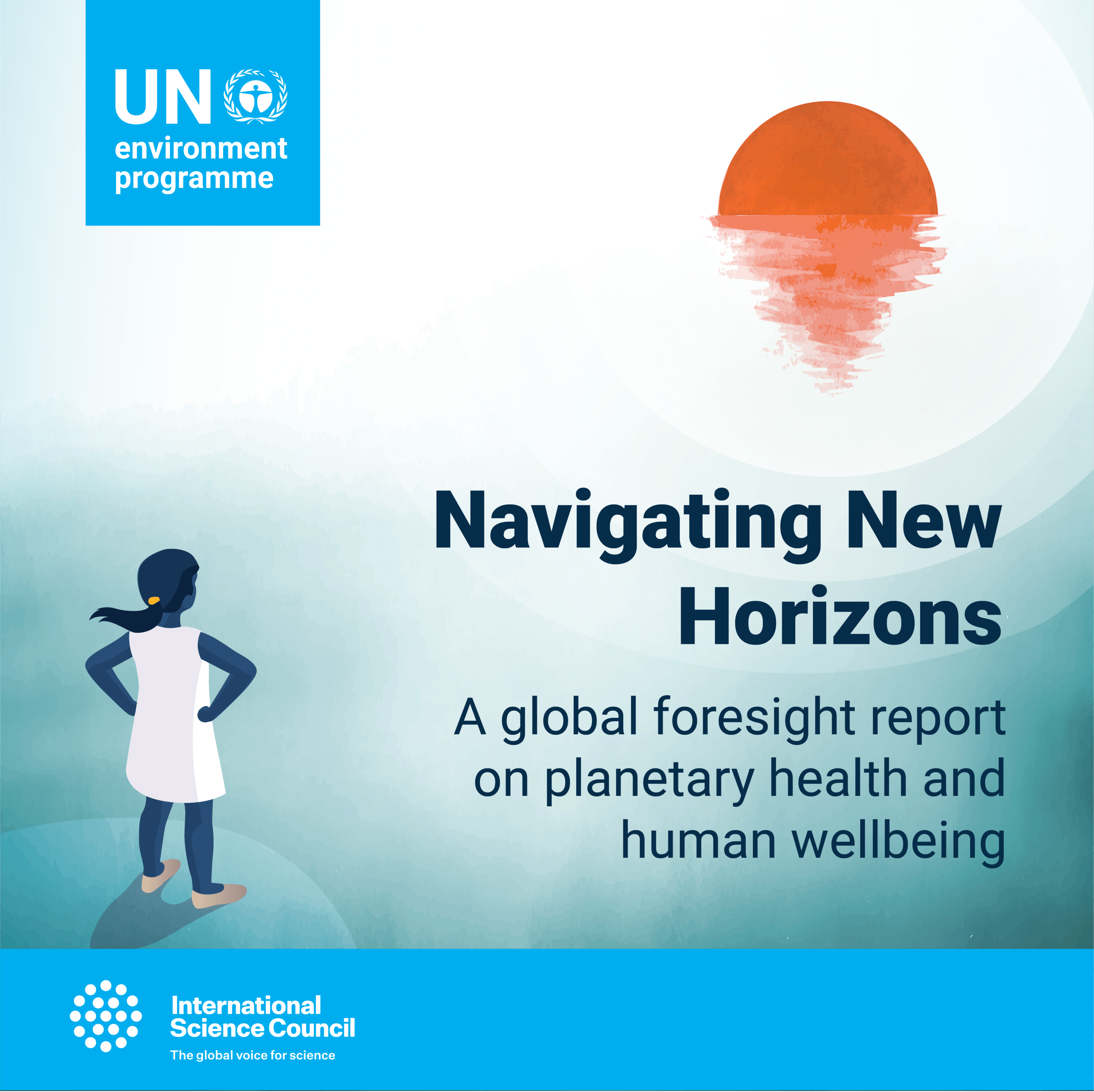
Navigating new horizons – A global foresight report on planetary health and human wellbeing
This report identifies eight critical global shifts that are accelerating the triple planetary crisis of climate change, nature and biodiversity loss, and pollution and waste.

A guide to anticipation: Tools and methods of horizon scanning and foresight
This Working Paper presents the tools to navigate uncertainty, helping us anticipate the unexpected and shape a future that works for everyone.
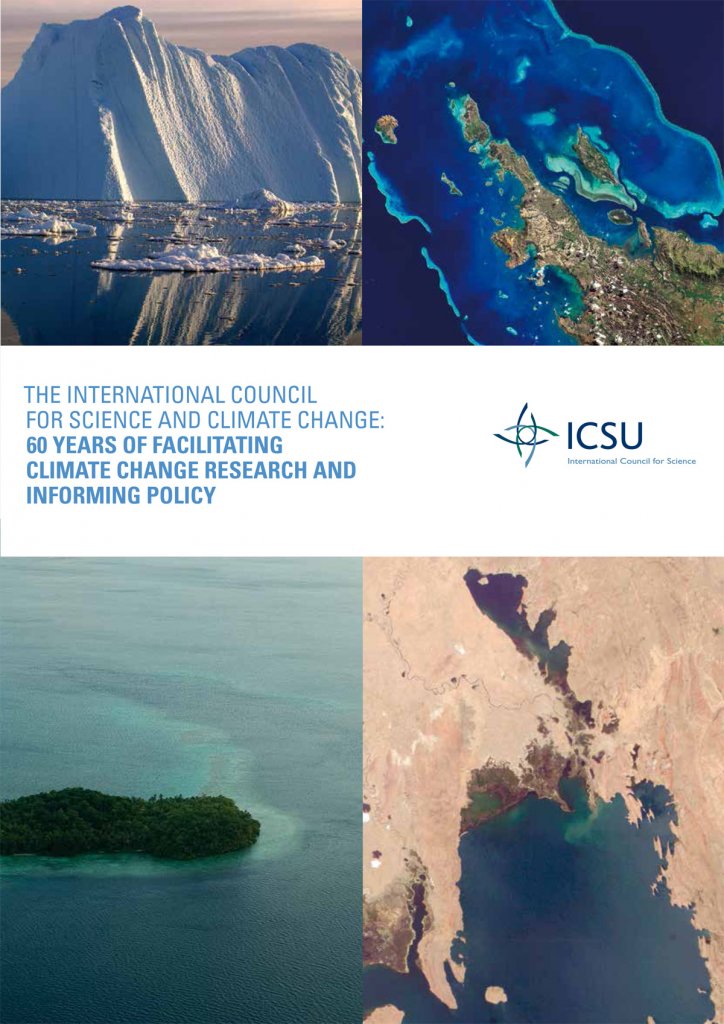
60 years of facilitating climate change research and informing policy
This document highlights the major contributions of the ISC (formerly ICSU) and its scientific community to the development of climate science, and explains how ISC’s approach to facilitating research collaboration to inform policy development has evolved over time.
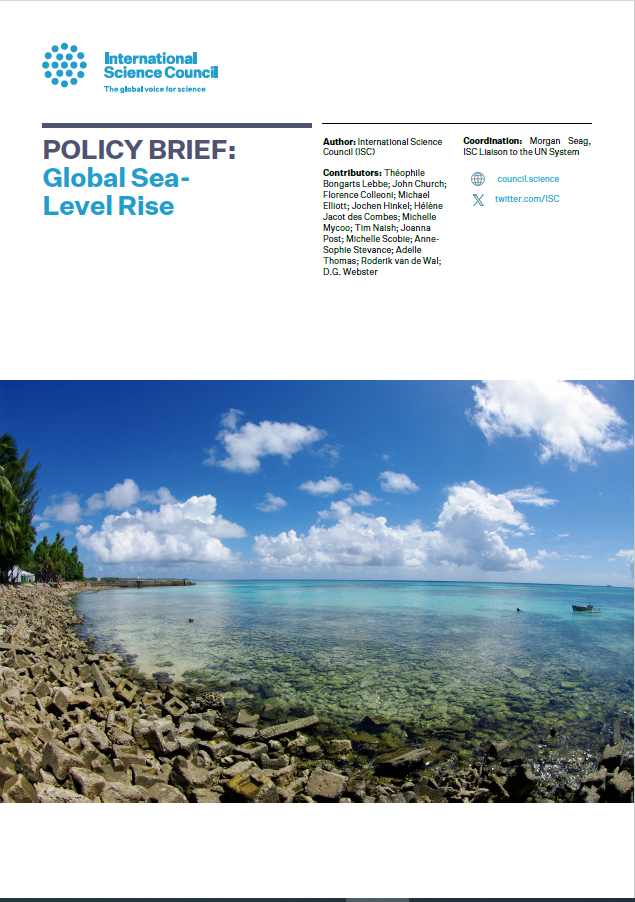
Policy Brief: Global Sea-Level Rise
This policy brief sheds light on key considerations for policy-makers on a wide range of issues related to sea-level rise, highlighting the value of engaging actionable, interdisciplinary scientific knowledge in responding to current and future challenges.
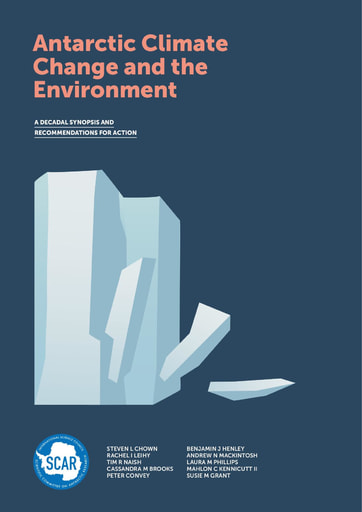
Antarctic Climate Change and the Environment: A Decadal Synopsis and Recommendations for Action
This report from the Scientific Committee on Artic Research (SCAR) provides concise compiled synopses of current understanding, explicit recommendations for actions to address change, and recommendations for additional research.
Social Transformations to Sustainability through a Critical Lens: Integrative insights from twelve research projects funded under the Transformations to Sustainability research programme.
Moser, S. 2024. Social Transformations to Sustainability through a Critical Lens: Integrative insights from twelve research projects funded under the Transformations to Sustainability research programme. Belmont Forum, International Science Council, NORFACE. DOI: 10.24948/2024.03

Programme Design for Transformations to Sustainability Research: A Comparative Analysis of the Design of Two Research Programmes on Transformations to Sustainability.
Mukute, M., Colvin, J., Burt, J. 2024. Programme Design for Transformations to Sustainability Research: A Comparative Analysis of the Design of Two Research Programmes on Transformations to Sustainability. Belmont Forum, International Science Council, NORFACE. DOI: 10.24948/2024.02
Find information about in-person and online activities organized by ISC Members, Affiliated Bodies, and the wider ISC network, and learn how you can participate in events.
This list is regularly updated, so please refer to the links below for more details.
Frontiers, Frontiers Research Foundation and the UN Climate Change Global Innovation Hub with host a panel session to showcase the Open Science Charter launched at COP28, calling for broader access to knowledge.
17:00-17:45 | Buta – Special Events Room | Blue Zone
ISC CEO Salvatore Aricò will join the panel as speaker.

The Global Carbon Budget (GCB) is produced annually as part of the Global Research Project, coordinated by the ISC Affiliated Bodies Future Earth and World Climate Research Programme (WCRP).
10:30-11:00 | Press conference 2 (Natavan) | Area C, Blue Zone
15:00-16:30 | SIDE EVENT 5 | Blue Zone
16:00-16:45 | Coalition of Rainforest Nations Pavilion | Blue Zone
11:00-12:15 | Science for Climate Action Pavilion | Blue Zone
The following sessions are related to the Biogeochemical Exchange Processes at Sea-Ice Interfaces (BEPSII).
15:00–16:00 | In-person event | Ocean Pavilion
13:00–14:00 | In-person event | Cryosphere Pavilion
13:00–14:00 | In-person event | Cryosphere Pavilion
This year, the Science for Climate Action Pavilion at COP29 will host events from the WMO, the Intergovernmental Panel on Climate Change (IPCC), and the MERI Foundation. The focus areas for these events will include Early Warnings for All, climate-sensitive sectors (such as agriculture, energy, and health), water and the cryosphere, and Earth observations to support climate mitigation and ambition.
14:00–18:00 | In-person event | WMO-IPCC-MERI Pavilion
The CEO of the International Science Council (ISC), Salvatore Aricò, will be attending COP29 and looks forward to engaging with ISC members and other stakeholders.
Photo by Lloyd Alozie on Unsplash